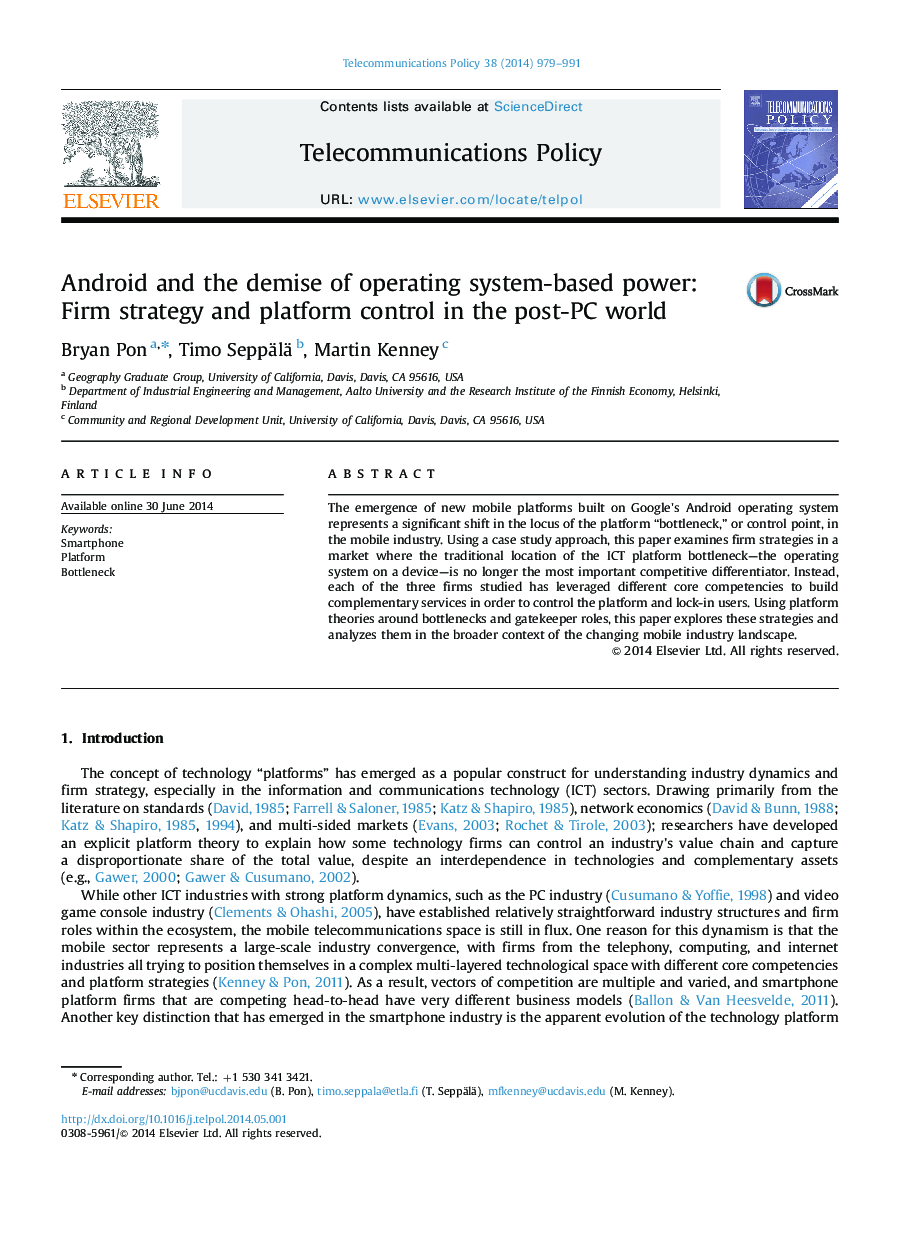| Article ID | Journal | Published Year | Pages | File Type |
|---|---|---|---|---|
| 556474 | Telecommunications Policy | 2014 | 13 Pages |
•Comparative case study to analyze platform strategies in the smartphone industry.•Uses three firms building proprietary platforms on the Android operating system.•Analysis suggests the operating system has ceased to be a control point or “bottleneck”.•Firms are relying on cloud-based services to lock-in users and capture value.
The emergence of new mobile platforms built on Google׳s Android operating system represents a significant shift in the locus of the platform “bottleneck,” or control point, in the mobile industry. Using a case study approach, this paper examines firm strategies in a market where the traditional location of the ICT platform bottleneck—the operating system on a device—is no longer the most important competitive differentiator. Instead, each of the three firms studied has leveraged different core competencies to build complementary services in order to control the platform and lock-in users. Using platform theories around bottlenecks and gatekeeper roles, this paper explores these strategies and analyzes them in the broader context of the changing mobile industry landscape.
